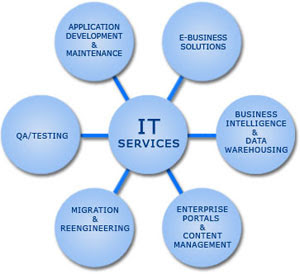As recently as a decade ago, operating an IT services business meant investing significant capital in hardware, software, and technical expertise as a way to offer your clients and customers more robust solutions. As a result, large enterprises like Dell and IBM had the upper hand when competing for business in the technology sector. These businesses had in-house assets and resources that made competition by small companies nearly impossible. Smaller IT businesses relied more on project work and specifically scoped engagements to survive and thrive while larger enterprises won the majority of the large scale solutions and integrations throughout the market.
However, the last few years have witnessed new platforms and resources come to market that level the playing field for smaller IT service providers looking to offer complex solutions to clients. Partnerships are now available for smaller companies, allowing them to offer more robust IT solutions. If there is a service or product you do not provide, it is easier than ever to find a company with which to align yourself as a way to open that product line to your customers. For example, there is no longer a need to build a data center for your enterprise, as colocation facilities and cloud options have proven just as reliable and significantly more cost effective. That said, how do you know what vendors or partners to trust? How can you be sure that your interests are aligned? How can you be sure the partners you work with are reliable and stable for the long term?
Here are five tips for how to choose the right IT services partnerships for your organization.
- Service. Far and away, the most important thing to consider when selecting partners to help expand your business is the service they offer to you. What are their Service Level Agreements? Do they have 24/7 support? Domestic or offshore? In-house or outsourced? Will they be supporting you or your end customer directly? You simply cannot undervalue the role of high-quality, high-availability support from your partner-vendors. Make sure you have a clear understanding of the support being provided as part of the partnership before you agree to work with another company.
- Uptime. Whether partnering with a VOIP provider or a colocation server facility, make sure you confirm their uptime statistics. “Five nines” (99.999% uptime) is often promised, but rarely realized. Most services will experience downtime (planned or otherwise) at some point. Make sure the promises of the partner are realistic and in line with your expectations.
- Agility. It is important to choose partners that act quickly when an opportunity presents itself. This, however, is a two way street; you need to work with partners who react quickly when you present an opportunity to them, just as you need to be quick to react to opportunities they present to you. There are few things more frustrating then partnerships that don’t feel equitable. If you aren’t working together for each other’s mutual benefit, then you may as well be “vendor” and “customer” instead of “partners.”
- Compatibility. While it rarely hurts anything, forging a partnership for no apparent reason is a waste of time. Make sure the partners you are considering actually provide services and solutions that integrate well with your offerings. For example, partnering with a colocation facility makes sense if you offer hosting services. That same partnership makes very little sense if your core business is IT security audits and assessments. Your partnerships should help enhance and amplify what your organization does and offers.
- Flexibility. While it is important to understand the terms and obligations of any partnership, that doesn’t mean that all partnerships shouldn’t be rigid in structure. If the goal of the partnership is to help both businesses grow, then there needs to be some flexibility in the relationship as both companies mature and thrive. Finding partners that are open to letting their relationship with you evolve over time can be of great benefit to both parties.
Finding the right solution for your clients is no longer a matter of matching their needs to your specific offerings. Decreased costs and increased option availability mean clients that trust your judgement should no longer be forced to choose someone else to service their IT needs. With the right partnerships, you can offer everything they need! Never before has the IT sector been so ready for small businesses to graduate into larger roles within the market. The concepts and tips above should help you on your mission to grow your business and satisfy your client’s needs. Click here to learn more about partnerships with Mosaic NetworX!






